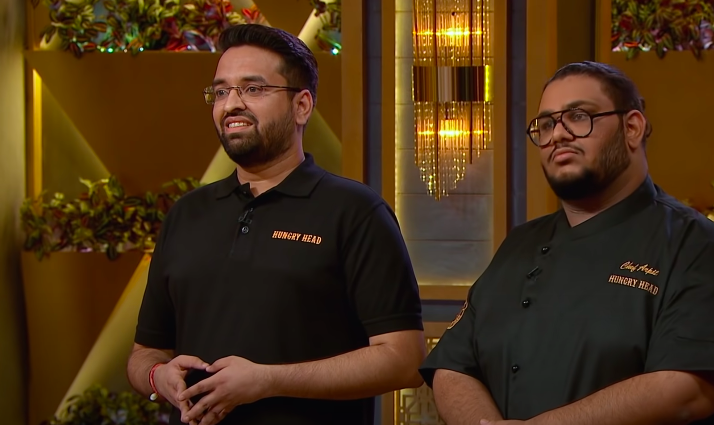Hungry Heads Shark Tank India Season 1
Hungry Heads
Hungry Head Shark Tank, an Indian business based in Mumbai, produces eighty different varieties of Maggi. Thus, online marketplaces such as Zomato, Swiggy, Doordash, Uber Eats, ChowNow, and others offer this food startup brand. Maggi in the Hungry Head 60 style is created, along with a lot of other cuisine. Its retail locations are in Ghatkopar East and Powai, two areas of Mumbai.
Founder of Hungry Heads
The business behind Hungry Head is Revolution Foods Pvt. Ltd. It was founded by three food-loving college mates, Arpit Kabra, Yash Patel, and Rahul Daga. Arpit possessed prior hotel management expertise, whereas Yash and Rahul were business owners and avid travelers. The concept of presenting more than 80 kinds of Maggi emerged from the desire to create fusion cuisine. Maggi is regarded as India’s comfort meal, evoking fond childhood memories.
Hungry Heads Funding Round
Company Name | Hungry Heads |
Shark Tank India Season | 1 |
Episode No | 14 |
Season No | 1 |
Brand | Hungry Heads |
Idea | Restaurant serving 80 types of Maggi |
Original Ask | 50 lakhs for 5% Equity |
Deal | No Deal |
Invested By: | ——– |
At the heart of Hungry Heads' pitch was a celebration of creativity and comfort food. Their concept of reinventing Maggi, a beloved staple in Indian households, resonated with consumers looking for innovative dining experiences. From classic flavors to exotic combinations, Hungry Heads promised to cater to every palate and preference, making Maggi the star of their menu.
The Pitch:
Hungry Heads made a bold entrance into the tank with a unique proposition: a restaurant dedicated to serving 80 different types of Maggi dishes. With an original ask of ₹50 lakhs for a 5% equity stake, Hungry Heads aimed to capitalize on the widespread popularity of Maggi while offering customers an unparalleled culinary experience.
The Deal:
Despite the novelty of their concept, Hungry Heads left the tank without securing a deal. While the Sharks acknowledged the potential appeal of their unique restaurant concept, they ultimately decided to pass on the investment opportunity for various reasons, ranging from concerns about scalability and market saturation to uncertainties about the long-term viability of the business model.
Conclusion:
While Hungry Heads may not have walked away from Shark Tank India with a deal, their presence on the show served as a testament to the power of creativity, passion, and innovation in the culinary world. As they navigate the challenges of entrepreneurship, Hungry Heads remains a shining example of the entrepreneurial spirit that drives individuals to pursue their dreams and share their unique vision with the world.

